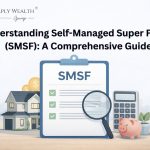Complete Guide to Lodging Tax Returns for Property Investors
Navigating the tax landscape can be daunting, especially for property investors. Understanding how to properly lodge your tax returns is essential to ensuring compliance and maximizing your financial benefits. The complexity of tax laws and regulations can create confusion, leading to potential errors or missed opportunities for savings. In this guide, we’ll break down everything you need to know about rental property taxes and how to successfully lodge your tax returns, providing you with clarity and confidence in managing your investments.
Understanding the intricacies of tax obligations not only keeps you compliant but also uncovers opportunities to optimize your returns. By delving into the specifics of rental property taxes, you can strategically plan your investments and manage your finances effectively. Whether you’re a seasoned investor or new to property ownership, this comprehensive guide will help you navigate the complexities of tax returns with ease and precision.
Understanding Rental Property Taxes
Rental property taxes can vary based on location, type of property, and income generated. Familiarizing yourself with the basics will help you manage your investment effectively. Each jurisdiction may have different tax rates and rules, making it crucial to understand the specific regulations that apply to your properties. Knowledge of these nuances ensures that you remain compliant and avoid unnecessary penalties.
Understanding the tax landscape of your rental properties also allows you to plan financially and strategically. By knowing what taxes you are liable for, you can budget more accurately and make informed decisions about potential property investments. This foresight can significantly impact your investment strategy and overall financial health.
Types of Rental Property Income
Rental property income typically includes several streams, each of which needs to be accurately reported for tax purposes:
- Rental payments: The primary source of income from tenants. This includes all regular rental payments made by tenants, which form the bulk of your property income.
- Security deposits: Any deposits kept for damages or unpaid rent. While typically not considered income, any portion retained for damages or breaches must be reported.
- Other income: Fees for services like laundry or parking spaces. Additional services provided to tenants can generate income, which must be included in your tax calculations.
Understanding these income streams is critical for accurate tax reporting. Each category may have different tax implications, and misreporting can lead to audits or penalties. Maintaining detailed records of all income sources ensures transparency and accuracy in your tax returns.
Tax Deductions for Property Investors
Property investors can benefit from various tax deductions, which can significantly reduce taxable income. Some common deductions include:
- Mortgage interest: Interest paid on loans taken to purchase the property. This can often be one of the largest deductions available to property investors.
- Property taxes: Taxes paid to local governments. These are typically deductible, reducing the overall tax burden on your investment.
- Operating expenses: Costs like repairs, maintenance, and utilities. Regularly incurred expenses necessary for the upkeep of the property are deductible.
- Depreciation: A non-cash deduction reflecting the property’s wear and tear over time. This powerful deduction accounts for the gradual decline in property value due to usage and aging.
Maximizing these deductions requires diligent record-keeping and awareness of applicable laws. Staying informed about changes in tax legislation can enhance your ability to claim all eligible deductions. This proactive approach not only reduces your tax liability but also enhances the profitability of your property investments.
Lodging Your Tax Return
Lodging a tax return involves several steps. Here’s a streamlined process to guide you:
Step 1: Gather Your Documents
Organize all relevant documents before starting the process. These may include:
- Rental income statements: Detailed records of all rental income received during the tax year.
- Mortgage and loan statements: Documents showing interest payments and outstanding loan amounts.
- Receipts for property expenses: Proof of payments for repairs, maintenance, and other deductibles.
- Property tax statements: Official documents from local authorities detailing property tax payments.
- Previous tax returns: Past filings can provide a reference and help ensure consistency and accuracy in your current return.
Having these documents ready will make the process smoother. Proper organization reduces the likelihood of errors and ensures you claim all eligible deductions. This preparation also saves time and effort when filing your return.
Step 2: Calculate Your Income and Deductions
Accurate calculation is crucial. Sum up all rental income and subtract allowable deductions to determine your net rental income. This figure will form the basis of your tax return. Ensuring precision in these calculations is vital to avoid overpaying or underpaying your taxes.
Utilizing spreadsheets or accounting software can facilitate this process, providing clarity and precision. By accurately calculating your net rental income, you can better anticipate your tax liabilities and plan your finances accordingly.
Step 3: Use Tax Software or Hire a Professional
Depending on your comfort level, you can either use tax software or hire a professional tax preparer. Software can be cost-effective and user-friendly, providing step-by-step guidance to complete your return accurately. However, tax professionals offer personalized advice and can handle complex situations, ensuring compliance and optimizing your tax strategy.
Choosing the right method depends on the complexity of your tax situation and your personal preference. While software provides convenience, professionals offer expertise that can be invaluable, especially for complex or large-scale property portfolios.
Step 4: Lodge Your Return
Once your calculations are complete, lodge your tax return through the appropriate channels. This might be through an online tax portal or via a paper return, depending on your jurisdiction. Ensure that all information is complete and accurate before submission to avoid delays or penalties.
Timely filing is essential to avoid late fees and interest charges. Understanding the deadlines and requirements specific to your jurisdiction ensures compliance and minimizes stress during tax season.
Common Mistakes to Avoid
Even seasoned investors can make mistakes. Here are a few common pitfalls:
Overlooking Deductions
Missing out on available deductions can lead to higher tax liabilities. Ensure you account for all eligible expenses. Regularly reviewing your expenses and consulting with a tax professional can help identify all possible deductions.
Thorough record-keeping throughout the year simplifies the identification of deductible expenses. By maintaining organized and detailed records, you can ensure no potential deductions are overlooked, optimizing your tax return.
Incorrectly Reporting Income
All rental income must be reported accurately. Misreporting can lead to penalties and audits. Double-checking your income records and consulting with a tax professional can mitigate these risks.
Inaccuracies in income reporting often stem from overlooked income streams or incorrect calculations. Regularly updating your income records and cross-referencing them with your bank statements can ensure accuracy and prevent costly errors.
Ignoring Depreciation
Depreciation can substantially lower taxable income. Calculate it annually to benefit from this deduction. Familiarizing yourself with the depreciation methods and schedules applicable to your property type is crucial.
Ignoring depreciation not only results in higher taxes but also represents a missed opportunity for maximizing your investment returns. By diligently calculating depreciation, you can effectively lower your taxable income and enhance your property’s profitability.
Tips for Successful Tax Lodgment
Here are some strategies to ensure a smooth process:
Keep Detailed Records
Maintain comprehensive records of all transactions, expenses, and income. This will simplify tax preparation and help in case of audits. Organized records provide clarity and can expedite the filing process, reducing stress during tax season.
Implementing a consistent record-keeping system throughout the year can prevent last-minute scrambling for documents. Whether through digital tools or manual filing systems, maintaining detailed records is a cornerstone of successful tax management.
Stay Informed on Tax Laws
Tax laws can change. Stay updated to ensure compliance and take advantage of any new benefits. Subscribing to tax newsletters or consulting with a tax advisor regularly can keep you informed about relevant legislative changes.
Proactive awareness of tax law changes allows you to adjust your strategies and take advantage of new deductions or credits. Staying informed ensures you remain compliant and optimize your tax returns year after year.
Plan for Tax Payments
Consider setting aside a portion of your rental income to cover tax liabilities. This prevents financial strain when tax payments are due. Regularly reviewing your income and projected tax liabilities can help you budget effectively for upcoming payments.
Proactive financial planning ensures that tax obligations do not catch you off guard. By setting aside funds throughout the year, you can manage your cash flow effectively and avoid financial stress during tax season.
When to Seek Professional Help
If your situation is complex or you’re unsure about any aspect of the process, seeking professional advice is wise. Tax professionals can offer guidance tailored to your circumstances and ensure accuracy. They provide insights into complex tax issues and help navigate intricate tax laws, maximizing your returns and minimizing liabilities.
Professional assistance is especially beneficial for investors with multiple properties or complex financial situations. By leveraging their expertise, you can ensure compliance and strategic financial planning, enhancing your overall investment strategy.
Conclusion
Lodging tax returns for rental properties doesn’t have to be overwhelming. By understanding the fundamentals, staying organized, and seeking help when needed, you can manage your tax responsibilities effectively. This guide aims to equip property investors with the knowledge and tools necessary to navigate the tax landscape confidently. With a clear understanding and strategic approach, you can turn the complexities of tax filing into opportunities for financial optimization.
Take control of your financial future and ensure compliance by following these steps. With careful planning and attention to detail, you’ll maximize your investment’s potential and minimize tax-related stress. As you continue to grow and manage your property investments, these insights will serve as a valuable resource, guiding you towards successful tax management and financial success.
Disclaimer: The information provided here is general in nature and should not be considered as professional tax advice. For specific tax guidance, please consult a qualified tax professional or visit the ATO website.











